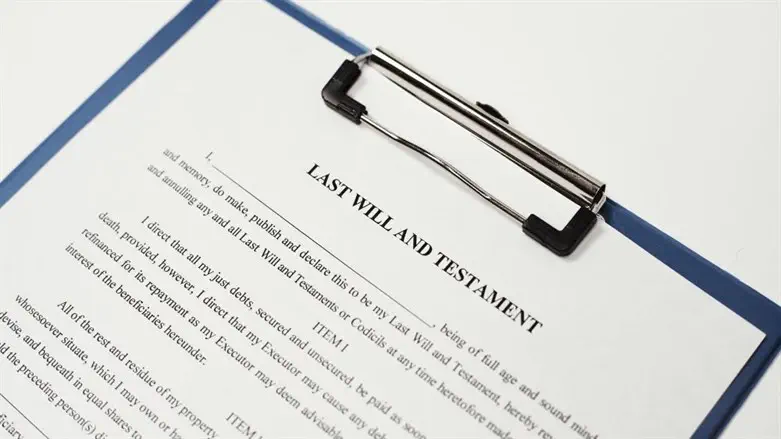
When a person has drafted a will, the inheritance will be distributed according to the provisions of this will, assuming that the will is in order and legally valid. However, in the absence of a will, the division of the inheritance is carried out according to the provisions of the Israeli Inheritance Law.
Inheritance division by law
In the case where there is a valid will, the inheritance division will be carried out according to the provisions of this will. Since the will reflects the wishes of the deceased regarding the distribution of their property, therefore priority is given to the distribution of inheritance according to the will.
When the deceased person did not draft a will before their passing, or alternatively a will was drafted but it is not legally valid, the inheritance will be divided pursuant to the provisions of the Inheritance Law, which regulates the heirs' identity, their share in the inheritance, spouses rights, order of inheritance and more.
The order of heirs by law
In the absence of a will, the order of heirs is determined pursuant to the Inheritance Law, which sets three "tiers of inheritance." The tiers of inheritance are arranged according to kinship to the testator, where the principle is that only one tier receives the inheritance. This means, only if there are no heirs found in the first tier, the right will pass to the heirs in the second tier and so on.
1. Descendants tier – descendants tier is the first tier of inheritance. If the testator left behind descendants, they have the first right to inherit. To note, the testator's adopted children are recognized by law as having equal status to his biological children, so that his adopted children also have the first right to inherit.
2. Parent tier – parent tier is the second tier of inheritance. When the testator left no descendants, the right to inherit will pass to his parents. The inheritance will be divided equally between them.
3. Parents of parents tier – parents of parents tier is the third and last inheritance tier. In a situation where no heirs were found in the first and second tiers, the right to inherit will pass to the parents of the testator's parents. Meaning, grandparents of the deceased. The inheritance will be divided equally between the testator's four grandparents.
What is the spouse's share of the inheritance?
The Inheritance Law states that the deceased spouse has a first right to the deceased property together with the rights of the heirs in a certain tier. Thus, in case the deceased left behind a spouse, his/her share of the inheritance is fixed, and what remains of the inheritance will be divided according to the three tiers of inheritance. However, the spouse's share of the inheritance grows as we go down the tiers of inheritance.
In the first tier, the spouse's share is one half of the inheritance, and the other half is divided between the descendants. In the second tier, the spouse receives half of the inheritance, and the other half is divided between the parents. But in case the parents are not alive, the spouse's share in the inheritance becomes two-thirds of the inheritance and the last third is divided between the parents. In the third tier, the spouse receives two-thirds of the inheritance, and the last third is divided between the decease's grandparents and their descendants according to the third tier.
It is important to note, the inheritance law states that the status of common-law spouses is the same as the status of a spouse who was married to the testator.
How is the inheritance divided in the absence of heirs?
When a deceased person did not draft a will and has left behind assets and property, in case no heirs were found for him the entire inheritance is passed to the State of Israel, and the use of the inheritance made by the State must be exclusively dedicated for science, health, social relief and education purposes.
In which cases will the division of the inheritance not be carried out pursuant to the Inheritance Law?
There are two additional cases where the division of the inheritance will not be carried out pursuant to the Inheritance Law:
The first case is when one of the heirs who is entitled to part of the inheritance, is legally defined as a person who is not entitled to inherit. In this situation, his share is divided equally between the other heirs.
The second case is when the person entitled to part of the inheritance is found guilty of the death of the testator, guilty of attempting to cause the death of the testator, or guilty of acting to eliminate the testator's will. In this situation, that person is disqualified from receiving the inheritance.